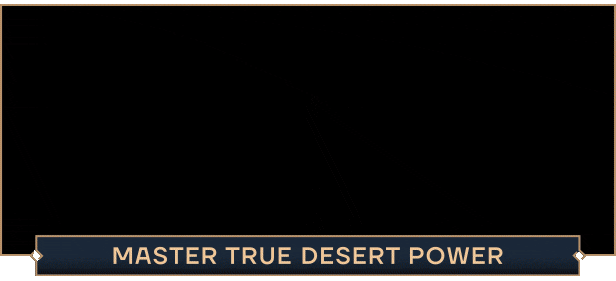Survive the Desert, Shape the Imperium
Dune: Awakening is not your typical survival game. Set on the ruthless sands of Arrakis, Funcom has blended open-world survival mechanics with political intrigue, MMO-style progression, and a deeply immersive sandbox experience. Whether you’re a long-time fan of Frank Herbert’s universe or someone looking for a fresh twist on the survival genre, Dune: Awakening offers something both familiar and revolutionary.

The Harsh Beauty of Arrakis
You begin with nothing but the clothes on your back, stranded in a sun-scorched hellscape full of deadly sandworms, intense heat, and other desperate survivors. The desert is as much a character as any NPC, demanding you respect its dangers and learn its ways. Managing hydration, building shelter, and avoiding death by worm are your first lessons.
However, once you gather your bearings, the game opens up. You’ll craft your first bike, gather rare resources, and eventually soar through the skies in an ornithopter. This evolution from survival to mobility and freedom is a huge part of the game’s appeal.
From Shelter to Siege
Base-building in Dune: Awakening is flexible and satisfying. You can construct anything from basic shelters to full-on palaces with elegant lighting, decorations, and practical storage. The building system is intuitive, featuring a modular design that facilitates easy expansion or redesign. However, more options for labeling containers and gaining experience from construction (as in Funcom’s Conan Exiles) would add depth.
Group play makes building even more engaging. Guilds can combine resources, unlock vehicles faster, and construct large-scale bases. Whether you’re joining friends or new allies, cooperation accelerates progress and opens up the more exciting parts of the game quicker.
Skills, Factions, and Political Drama
Progression comes from learning different schools—Soldier, Swordmaster, Bene Gesserit, and more, each offering unique abilities and gear. From using “The Voice” to command enemies, to mastering dart rifles and melee combat, there is a rich arsenal of tools to experiment with.
As you grow in power, you can pledge allegiance to either House Atreides or House Harkonnen. Through the Landsraad system, players shape world events and server-wide decrees. Eventually, entire guilds can align with a house, unlocking exclusive rewards and participating in larger conflicts.

Emergent Roleplay and Social Systems
MMO-style social hubs, such as Arrakeen and Harko Village, allow for trading, socializing, and role-playing. You might stumble into an oasis bar offering free water or wander into an intricately designed player-built outpost with full roleplay backstories. These moments are unscripted and magical.
Roleplaying players and guilds enhance the immersion, making Arrakis feel truly lived-in. Whether you’re a trader, mercenary, or lore-obsessed Fremen, the sandbox supports it.
Combat and the Deep Desert PvP
Combat in Dune: Awakening is real-time and skill-based. You’ll switch between melee and ranged weapons, manage cooldowns, and use vehicles in battle. PvP is optional, but the Deep Desert is where true competition lies.
Here, guilds battle over massive spice blooms, and loot is on the line. While the high-stakes environment adds excitement, players often avoid PvP during specific periods due to the steep penalties. Structured PvP zones, like gladiatorial arenas, would help encourage more meaningful battles.
When it does work, it shines. From chaotic air-to-ground battles to duels for guild leadership, the system allows for memorable showdowns—if you can find willing participants.
The Story: Hidden Among the Sands
Though survival-focused, Dune: Awakening still offers a surprisingly robust narrative. Cutscenes, boss fights, and evolving missions center around the Lost Fremen and your chosen allegiance. These story beats are delivered at your pace, meaning you can ignore them or dive deep after dozens of hours.
The tone fits perfectly into the Dune universe, and future expansions promise to add more cities, quests, and narrative branches. For an online survival game, the inclusion of a story is a welcome surprise.

Systems and Polish
Vehicle crafting is a highlight. Building your ornithopter is a straightforward yet rewarding experience, transforming travel into a joy rather than a chore. Flying with your crew, diving into new zones, or chasing spice blows feels like a reward in itself.
Still, the game isn’t without flaws. Netcode hiccups, occasional crashes, clunky UI elements, and unclear PvP mechanics need to be ironed out. However, Funcom is actively patching and responding to community feedback.
No Subscriptions, No Nonsense
A major win: Dune: Awakening is not a subscription game. You buy it once. Monetization is minimal, primarily through cosmetics, with potential for future expansions. This approach respects players’ time and wallets, aligning well with a community-first model.
Should You Play It? Yes. Especially if you enjoy survival games with deep lore and team-based progression.
Should You Buy It? Absolutely, if you like what Conan Exiles, Rust, or ARK offer but want it in the world of Arrakis.
Dune: Awakening: Dune: Awakening delivers a unique survival MMO that captures the essence of the Dune universe while offering solid crafting, PvP, and social systems. Whether you want to build a desert empire, explore lore-rich ruins, or just glide over sand dunes with friends, there’s something here for every type of player. It still needs polish and more structured endgame content, but with active development and a committed community, the future looks bright. If you're a Dune fan or survival sandbox enthusiast, this one’s a must-play. – Obsidian


